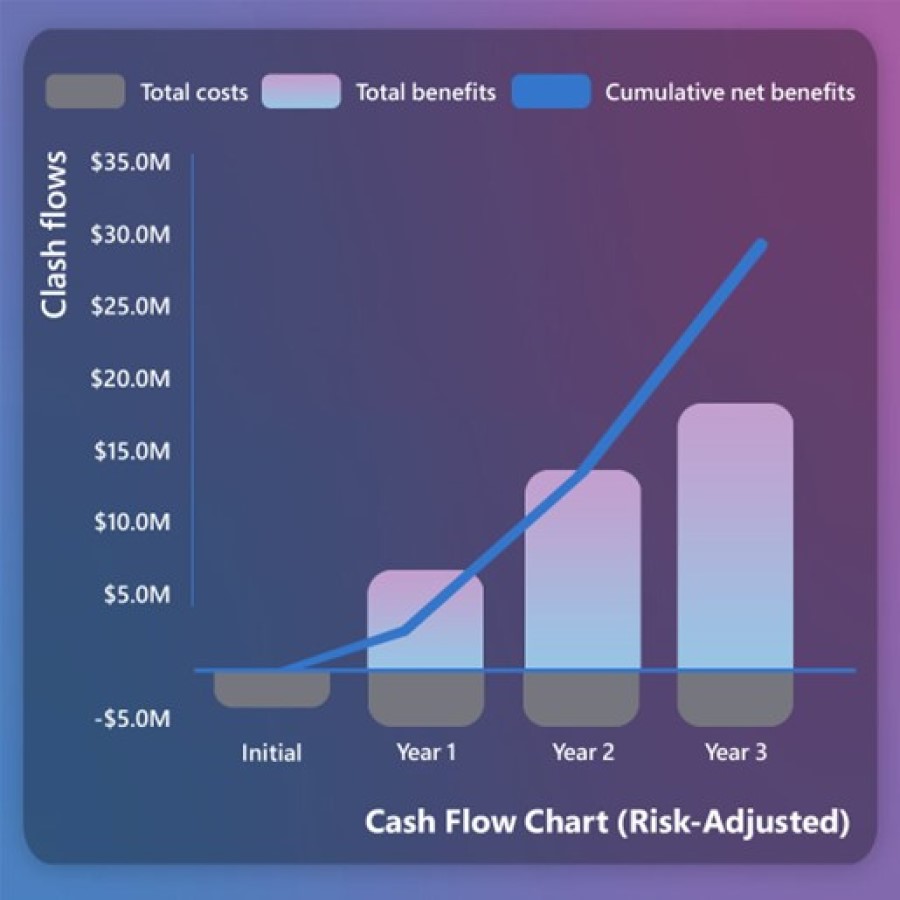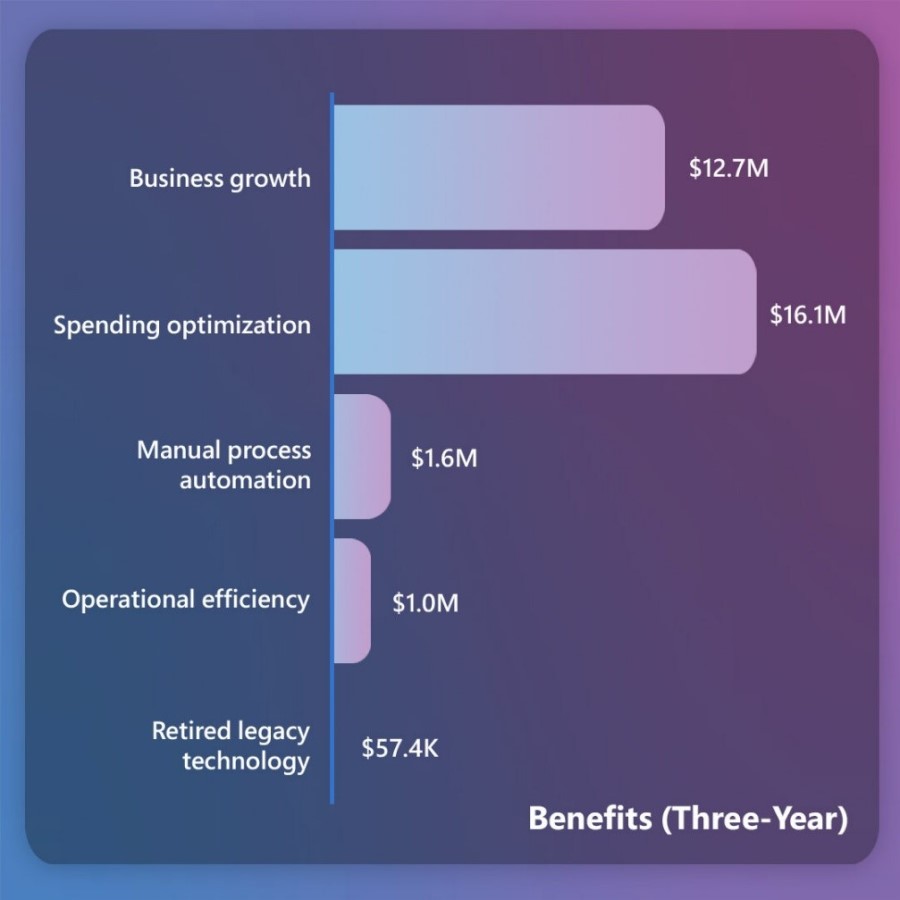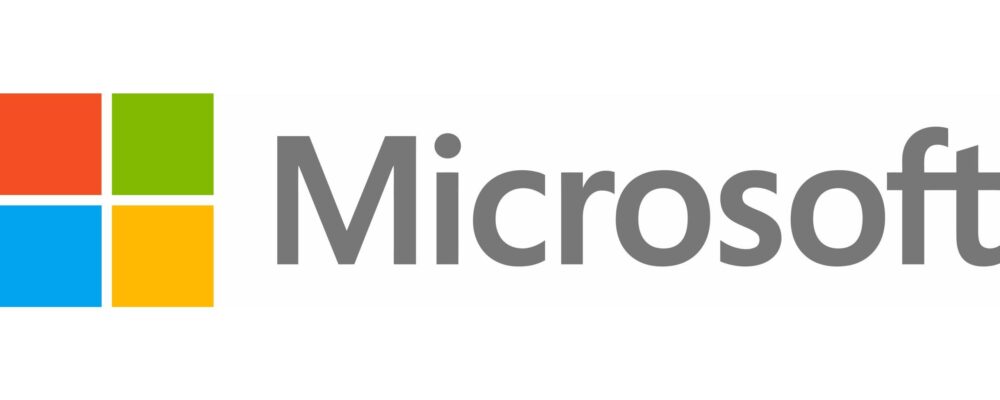At Microsoft Build this year our CEO Satya Nadella grounded the excitement surrounding AI back to one simple goal: to better serve unmet user needs.
He asked “Why do we build software?” and, in doing so, he reminded us it’s not the technological capabilities of AI tools that make them so valuable, but instead where we apply them and for whom. Great products have always, and will always, be about people, and that’s what’s energizing us most on the Microsoft Azure team right now.
(Article image above is an executive summary of the Total Economic Impact of Microsoft Azure AI, a study conducted by Forrester Consulting and commissioned by Microsoft in April of 2023.)
Azure customers are already infusing AI in incredible ways, building next-gen app experiences with cutting-edge innovation from Azure AI services with the backing of Azure’s trusted cloud platform. CarMax, H&R Block, the NBA, and most recently announced, Mercedes-Benz are putting Azure AI to work to differentiate their respective businesses, and they’re proving how investments in innovation quickly pay themselves forward—even during a challenging economy. When AI-powered apps like the CarMax research tool help us scour online reviews of 4,500 car types in seconds, or NBA CourtOptix serves up insights behind our favorite players’ moves, we see first-hand how our own needs inspire truly remarkable software development.
Even so, some customers that are ready to invest in AI tell us that they need help making the financial case for the tools they need to build great products. That’s why today we’re sharing a new Total Economic Impact™ (TEI) study conducted by Forrester Consulting, which captures the costs and benefits of innovating with Azure AI services over a three-year journey. The report analyzes not just one Azure AI service but the exponential effect of multiple. CarMax, for example, leverages a combination of Azure OpenAI’s Chat GPT, Azure Cognitive Search, and Azure Machine Learning Responsible AI dashboard to design their own data-driven AI solution. When you partner with Azure, you gain access to pre-trained large language models that are enterprise-ready and it’s exciting to see customers combine our products to create their own digital IP with the same building blocks Microsoft trusts for its products.
Bring high-quality AI to market with fast ROI
Grounded in a composite organization, trusted financial model, and interviews with decision-makers across five organizations, our new Forrester study shows how Azure AI services collectively resulted in a 284 percent return on investment. Forrester breaks this big number down into tangible value by category, calculating $12.6 million gains from business growth and $16.1 million gains in spending optimization. Impact of such magnitude doesn’t happen overnight, but it also happens a lot sooner than some organizations might think. With a well-architected cloud foundation, AI can be infused smoothly into all kinds of applications and start automating cumbersome processes fairly fast.
In Forrester’s findings, Azure AI services showed potential payback in less than six months because Azure’s pre-trained models are so accurate and the services integrate well across other Azure and Microsoft Cloud products. Azure AI also offers turnkey services that unblock specific tasks even faster out of the box. Azure Form Recognizer, for example, continues to be incredibly popular because it was purposefully designed to make documents intelligent and searchable. In a single service, it brings together business logic, the orchestration of multiple AI skills, and a UI to support more nimble app deployment.
Start small to move quickly and grow fast
Creating space and resources for technological innovation has never been easy, but it’s what keeps companies competitive through economic headwinds. Lately, what’s been most interesting for me as a B2B marketer is watching my own friends and family members realize the possibilities of AI as we experiment with prompt engineering in the new Bing around a dinner table. It has struck me that AI isn’t in the background anymore; it’s very much at the forefront of how we think about tackling solutions through software and what we as humans expect from digital experiences. The transformative shift of generative AI has all industries reimagining their products and services. In Forrester’s study, Azure AI helped generate revenue from new products, and the value of these compounded in worth year-over-year, generating $3.1 million of revenue growth in year one, then $5.6 million in year two, and $6.9 million in year three. Well-calculated risks are the ones organizations can’t afford to take, especially when they serve those unmet user needs.
The qualitative interviews Forrester conducted for the study revealed a trend across the five different organizations that participated: using a planful pilot approach produces strong financial results. In aggregate, the value was mapped from initial planning, model development, and training with just eight people to an expanded team of 40 data engineers and data scientists. The study itself essentially demonstrates what a startup mentality inside a large organization can do. One retail customer interviewed said something that just stuck with me as we look at the cash flow chart below, they said, “Before, we didn’t have maturity around ML (machine learning). Now that we do, we can move away from a subscription-based tool which is not cheap, and go to a consumption-based tool like Azure, where 100 percent of what we build is an asset [to our organization] …” That’s exactly what innovating with Azure is about: helping you build your own proprietary value in the cloud—unique solutions your competitors can’t buy.

The AI adventure
We often talk about technology as a journey, and in this journey, AI is what gives digital transformation a sense of adventure and purpose again. The cost savings and optimization of cloud computing will continue to fund the magic of AI. It’s all interconnected and when you partner with Azure to build and run AI, that’s how we’ll support your vision and your teams.
Microsoft is a technology company, a small local company, with few employees, no offices, and almost making no profit… >>
Please visit the firm link to site



